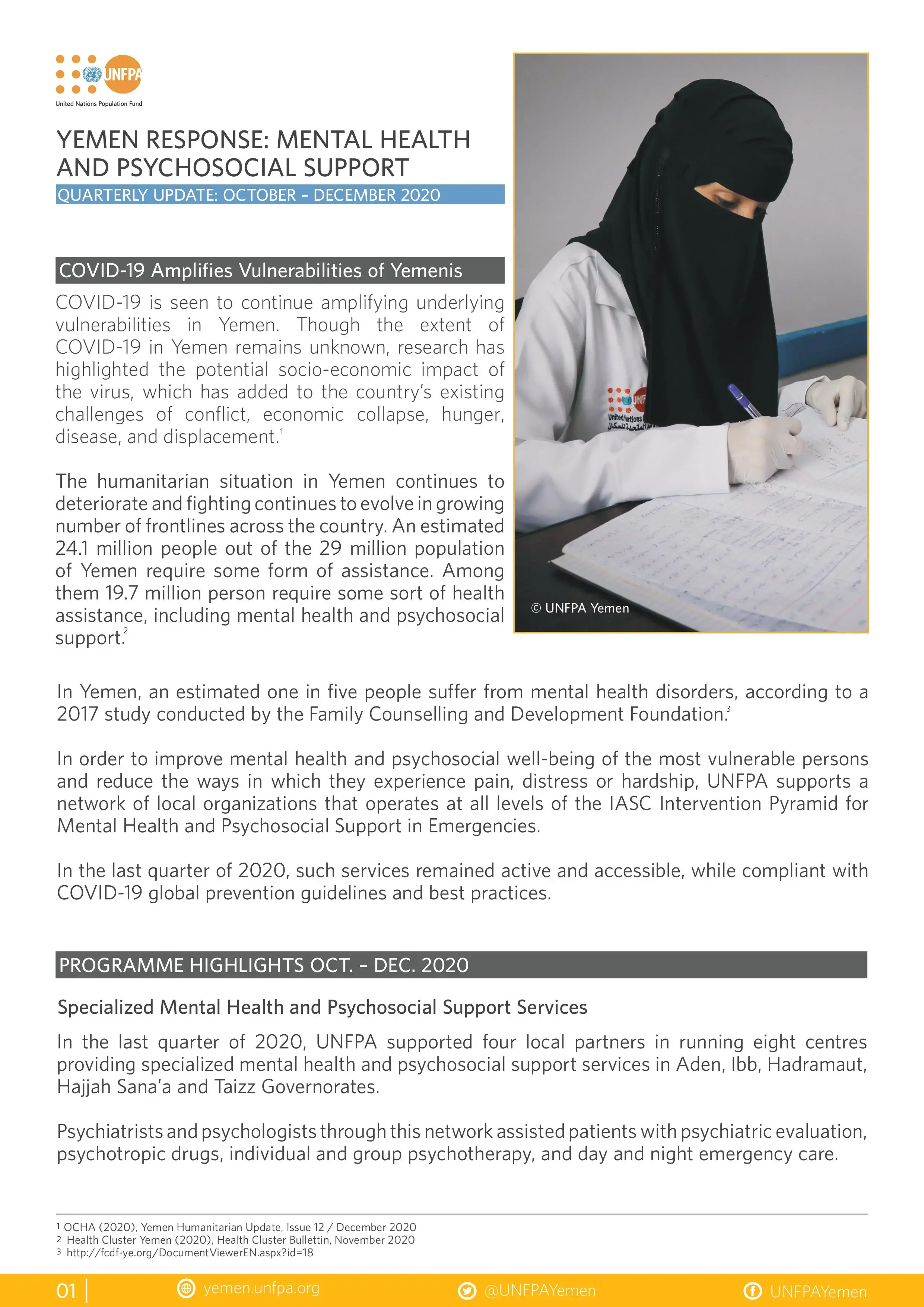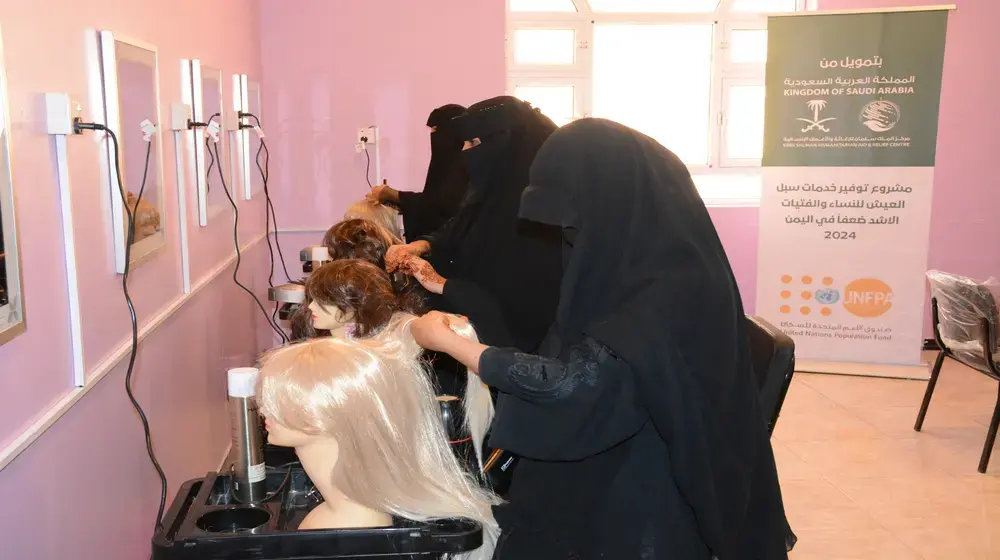COVID-19 is seen to continue amplifying underlying vulnerabilities in Yemen. Though the extent of COVID-19 in Yemen remains unknown, research has highlighted the potential socio-economic impact of the virus, which has added to the country’s existing challenges of conflict, economic collapse, hunger, disease, and displacement.
The humanitarian situation in Yemen continues to deteriorate and fighting continues to evolve in growing number of frontlines across the country. An estimated 24.1 million people out of the 29 million population of Yemen require some form of assistance. Among them 19.7 million person require some sort of health assistance, including mental health and psychosocial support.
In Yemen, an estimated one in five people suffer from mental health disorders, according to a 2017 study conducted by the Family Counselling and Development Foundation.
In order to improve mental health and psychosocial well-being of the most vulnerable persons and reduce the ways in which they experience pain, distress or hardship, UNFPA supports a network of local organizations that operates at all levels of the IASC Intervention Pyramid for Mental Health and Psychosocial Support in Emergencies.
In the last quarter of 2020, such services remained active and accessible, while compliant with COVID-19 global prevention guidelines and best practices.





